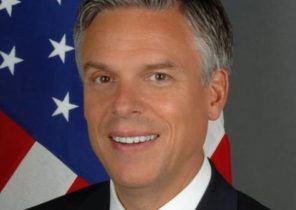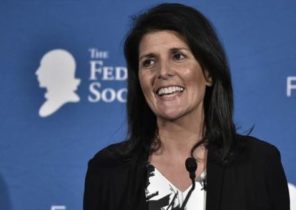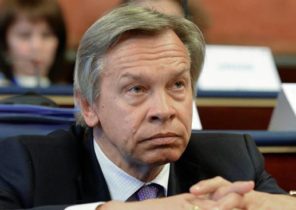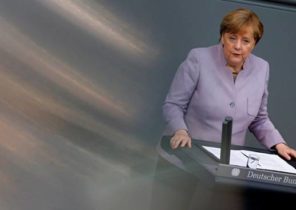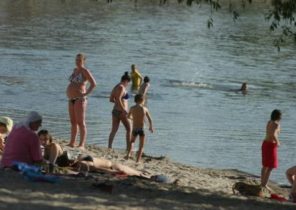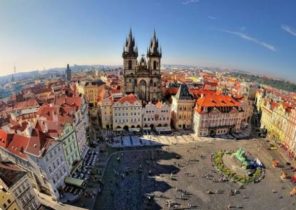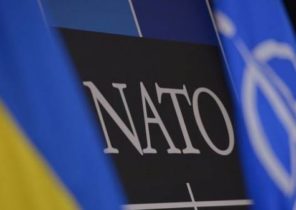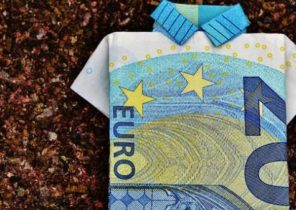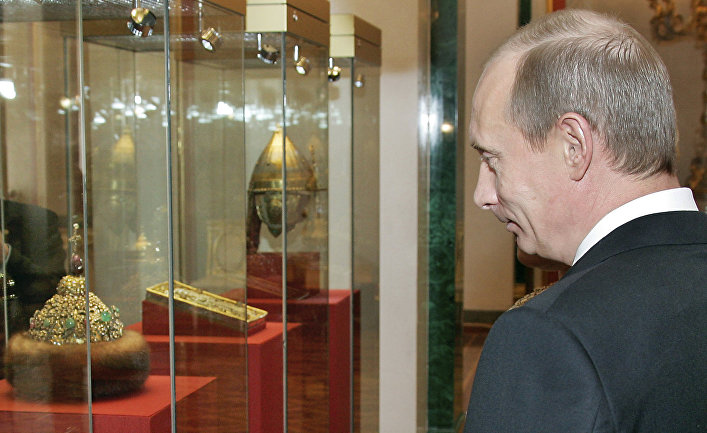
According to several biographical summaries, history was a favorite subject of Putin in school, and he continues to demonstrate her keen interest. If you believe the press Secretary of the President Dmitry Peskov, Putin remains a voracious reader, consuming dozens of books on the history of Russia. But the Kremlin leader, of course, not just modest deals with the past. He seems, also seeks to rewrite and manipulate them.
Working in a Washington political analyst Nikolai Zlobin said that every presidential term Putin had their own “main idea”. The first term was devoted to politics: the Kremlin sought to consolidate the “state sovereignty” and regain control of the center over the country by constructing the so-called “vertical of power”.
The second period was the economy: Putin was preoccupied with the building of state capitalism, strengthening state-operated large energy company with the aim of turning Russia into an “energy superpower”.
Putin 3.0, according to Zlobin, focused on ideology, the Kremlin leader is trying to consolidate their power in the present and to ensure the preservation of their heritage in the future. The realization of these objectives will determine its “moral and historical” stage.
Drawn Zlobin scheme of political evolution Putin, perhaps, too neat to be able to reflect a much more complex reality “on the ground”. But his remark that the Kremlin is increasingly concentrated on ideology and history, is correct.
We, apparently, are witnesses of an important turning point in the approach of the Russian ruling elite to the values and ideals, as well as the history of the country. In addition, the Kremlin, apparently, has no clear plan to ensure future prosperity, and he is experiencing difficulties with the management of this. In the end, the mechanisms for constitutional legitimacy is acquired through elections — does not work properly. This leaves the Kremlin the only way out: to focus on the achievement of historical legitimacy.
For most of the past two decades, the official position of Moscow was that she shared with the West core liberal values. And when her interpretation of these values is different from the understanding of them by the West, Russian officials explained the differences alleged special historical conditions in Russia.
But now from this position definitely refused. Now the Kremlin prefers to protect and promote what he calls “traditional national values” — reflected in an extremely blurred concept about Russian “spirituality” and a vague idea of “inner strength” derives from “millennial history” of Russia.
The current task of the Kremlin’s ideology is a conceptualization of Russia’s historical path, to demonstrate that the underlying Russian civilization values and principles are the original values, formed over the centuries.
According to the Russian ideology, the basis of uniqueness and originality of Russia lies in her past, in which the country faced with the realities that differed from what I had to deal with Europe. As noted in a recent article in a special issue of the journal “Expert” under the title “Russia: Five centuries of the Empire”, “Russia had no choice but to be an Empire or be “a normal European democratic state.” Had a choice — to be an Empire or to be a colony”.
Such a statement implies an important conclusion: if the only alternative is to accept foreign conquest or political revolution, some form of authoritarian rule appears warranted to combat these threats.
The thesis of the “special path” of Russia will in the coming years to pass a test of strength. In particular, it will be interesting to see how Putin’s Russia will mark the centenary of the 1917 revolution that launched the Soviet era of Russian history.
Almost since its the end of the Soviet era has become a particularly challenging subject for historians: was this period a radical departure from the natural flow of Russian history or part of it?
Immediately after the collapse of the USSR in 1991, Yeltsin’s “Democrats” have expressed a desire to break completely with the Soviet past. Yeltsin was even thinking to declare the Russian Federation the legal successor of the Russian state, which existed until 1917. But in the last years of the Yeltsin administration, the Kremlin began to soften anti-Soviet rhetoric and changed it to a policy of tolerance towards the Soviet heritage, which then evolved into a policy of cautious reconciliation. And with the coming to power of Putin was already a full-blown reconciliation.
And today, according to a survey, most Russians support the idea of restoring the USSR. “This is our common history, and you need to treat it with respect,” Putin said in the message to the Federal Assembly on 1 December. — This was written and an outstanding Russian, Russian philosopher Alexei Fedorovich Losev. “We know all the thorny path of our country, — he wrote — we know the anxious years of struggle, lack, suffering, but for the son of his homeland all is their own, inherent, native.”
Definitely endorsing Patriotic fervor Losev, Putin straightforwardly formulated its approach to the Russian past: “the Lessons of history we need, above all, for reconciliation, to strengthen the social, political, civil harmony, which we managed to achieve. … Let’s remember: we are one people we are one people, and we have one Russian”.
The Putin administration, in an attempt to achieve historical legitimacy, is trying to synthesize disparate elements from various “past” of Russia in a sort of eclectic fusion. This compound is then presented as accurately noted by the historian Frederick Roots, as “history without guilt and pain,” offering “reconciliation without truth”.
Ironically, the end result of these historiographical innovations vividly recalls the mocking description of an “ideal Russia” in the novel of Vladimir Nabokov “Pnin”. Nabokov spoke of “reactionary savetofile mixture” in the minds of some Russian contemporaries, “for whom an ideal Russia consisted of the red Army, the Lord’s anointed, collective farms, anthroposophy, the Orthodox Church and hydroelectric power plants”.
Igor Torbakov is a senior research fellow at the Uppsala University (Uppsala University) and Swedish Institute of international relations (Swedish Institute of International Affairs) in Stockholm.
